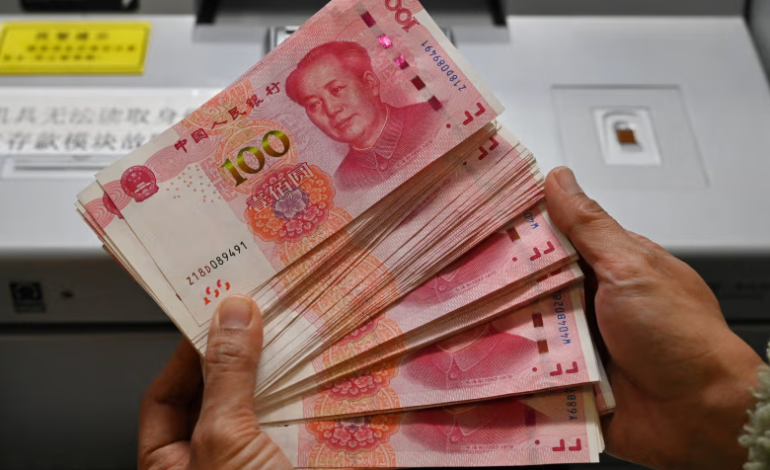China has allowed its currency, the renminbi, to weaken past a long-defended threshold, signaling a possible shift in its exchange rate policy amid escalating trade tensions with the United States.
On Tuesday, the People’s Bank of China (PBoC) set the currency’s reference rate at Rmb7.2038 per dollar—the lowest level since September 2023—marking the first time in 18 months that it has been fixed below Rmb7.20.
This development comes as China and the US remain locked in a trade standoff, with US President Donald Trump recently imposing sweeping tariffs on Chinese exports. A weaker renminbi could make Chinese goods more competitive in global markets, potentially offsetting some of the negative effects of US tariffs.
However, analysts believe that a major devaluation is unlikely. While a declining exchange rate might help Chinese exporters, it also carries risks, such as capital outflows and financial instability. Beijing has historically intervened to stabilize the renminbi, and some experts suggest that rather than allowing a sharp devaluation, the PBoC may prefer a gradual weakening of the currency to maintain economic confidence.
China’s currency policy is closely managed through a system where the PBoC sets a central parity rate daily, allowing the market rate to fluctuate within a controlled band. Despite pressure from trade tensions, Chinese officials have largely maintained a stable exchange rate, resisting excessive depreciation.
Market reactions indicate that investors remain uncertain about the currency’s trajectory. Traders have priced in increased volatility in renminbi derivatives, suggesting heightened speculation on potential policy shifts. Some economists argue that if trade tensions worsen, China may allow further depreciation, but a drastic move is considered unlikely given the potential for capital flight and economic instability.
The Financial Times, the Wall Street Journal, and Bloomberg contributed to this report.










The latest news in your social feeds
Subscribe to our social media platforms to stay tuned